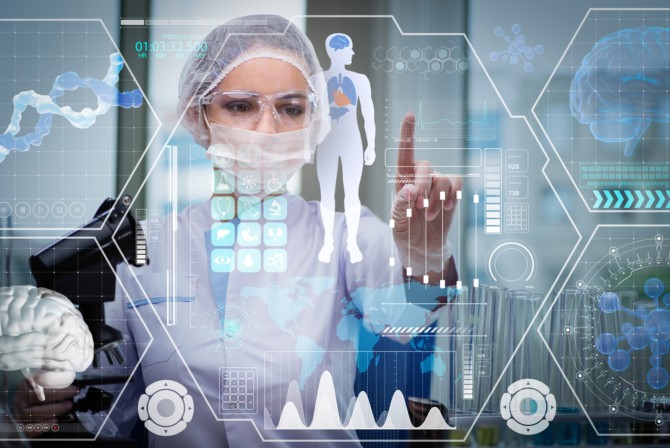
Due to the novel Coronavirus, scientists, researchers, and clinicians in medical industries are aggressively looking for new technologies to screen infected patients in this worldwide health crisis. Their ambitions go further in search of a vaccine, optimizing clinical trials and controlling the spread of the virus, and even finding a cure for infected patients. Recent studies reveal that machine learning and Artificial Intelligence are among the promising technologies that can easily track and limit the virus’s spread.
AI, as it is known, can identify high-risk patients, control the infection in real-time, and predict mortality risk or recovery by adequately analyzing patients’ previous health data. In addition, it can play an essential role in understanding and suggesting a faster and efficient route for developing the Covid-19 vaccine.
Healthcare industry professionals can utilize AI as an evidence-based medical tool. Healthcare needs decision-making technologies to handle the Covid-19 virus in real-time and strategies to limit its infection rates and its spread. The availability of big data can enable AI to help diagnose and treat diseases at an unprecedented pace. Human intelligence assisted by AI can offer a well-balanced view of what neither could do on their own. Some of the digital technology initiatives taken in the Covid-19 pandemic for organized preparedness and response are described below.
Tracking disease activity
Artificial intelligence has helped to control the spread of Covid-19 infection in several countries. Data gathered on people’s locations, and movement from mobile phones, mobile payment applications, and social media allowed the authorities to develop machine learning models to forecast the regional transmission dynamics of SARS-CoV-2.
Early detection and decision science
Iceland and other countries used mobile phones to collect data on patient-reported symptoms. They combined that data with other datasets to reveal information about the pathology and spread of the virus. This approach helped in calculating the prevalence and transmission of asymptomatic Covid-19. According to studies, AI can quickly analyze irregular symptoms and raise ‘red flags’ and alarms for both patients and connected healthcare professionals. Tracking symptom irregularities automatically helps to provide faster and accurate decision making. Moreover, with appropriate algorithms, a new diagnosis and management system for Covid-19 cases can be developed for early diagnosis and treatment using decision science.
Contact tracing
AI can analyze regional infection levels by identifying clusters and ‘hot spots’ and can even perform individuals’ contact tracing and monitoring. It can also predict the future course of the disease and its likely reappearance. Several countries used these AI tools to track the infected population and segregate and send them to isolation to avoid further spreading the disease.
Clinical management
While AI can build an intelligent platform for automatic monitoring and risk prediction of this virus’s spread, a neural network can also help monitor and treat the affected individuals. Virtual care platforms, using video conferencing and digital monitoring, have been used worldwide to deliver remote care to patients as a means of reducing their exposure to SARS-CoV-2 in institutions.
Projection of infections and mortality forecast
This technology can track and forecast the possible risks this infection can likely spread based on the collected data from available sources such as social media and other platforms. Further, it can help to predict the number of positive cases and forecast deaths in that region. Thus AI can be used to identify vulnerable areas and allow authorities to take measures accordingly.
Vaccine development
AI is an essential tool for research purposes as it is used for drug research, drug delivery design, and development by analyzing the available data on Covid-19. It can help to accelerate this process significantly, which may not be possible by a human. It can help to identify useful drugs for the treatment of Covid-19 patients.
The integration of AI and other technologies has helped several countries flatten their Covid-19 incidence curves and maintain low mortality rates. Many states and regions quickly deployed digital technologies to facilitate planning, surveillance, testing, contact tracing, quarantine, and clinical management. If these technologies are implemented and delivered appropriately and ethically, they can increase healthcare access during the pandemic and after. If not used wisely, they may lead to risks involving misdiagnoses, equipment malfunction, privacy breaches, and additional costs to already overburdened healthcare systems.







